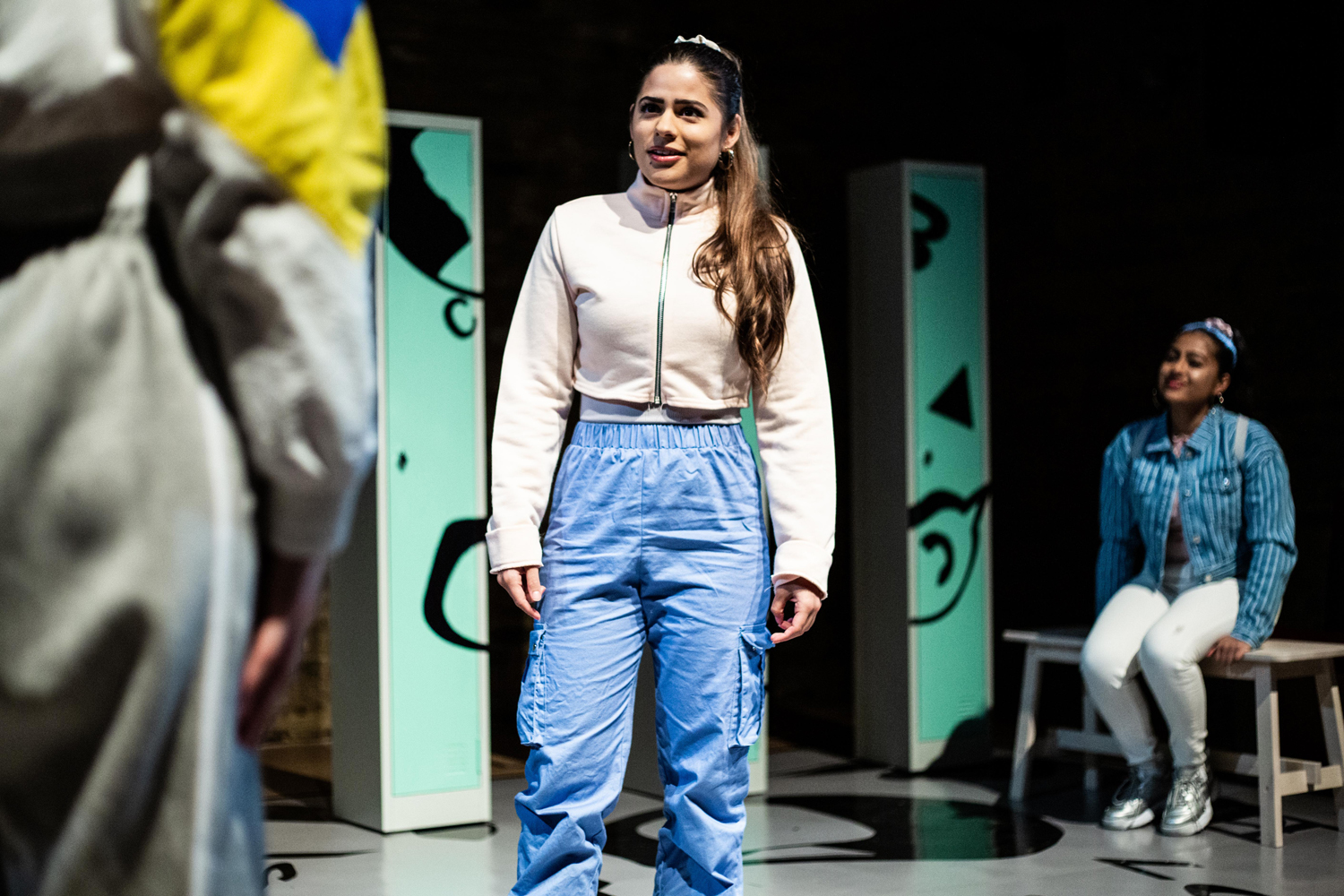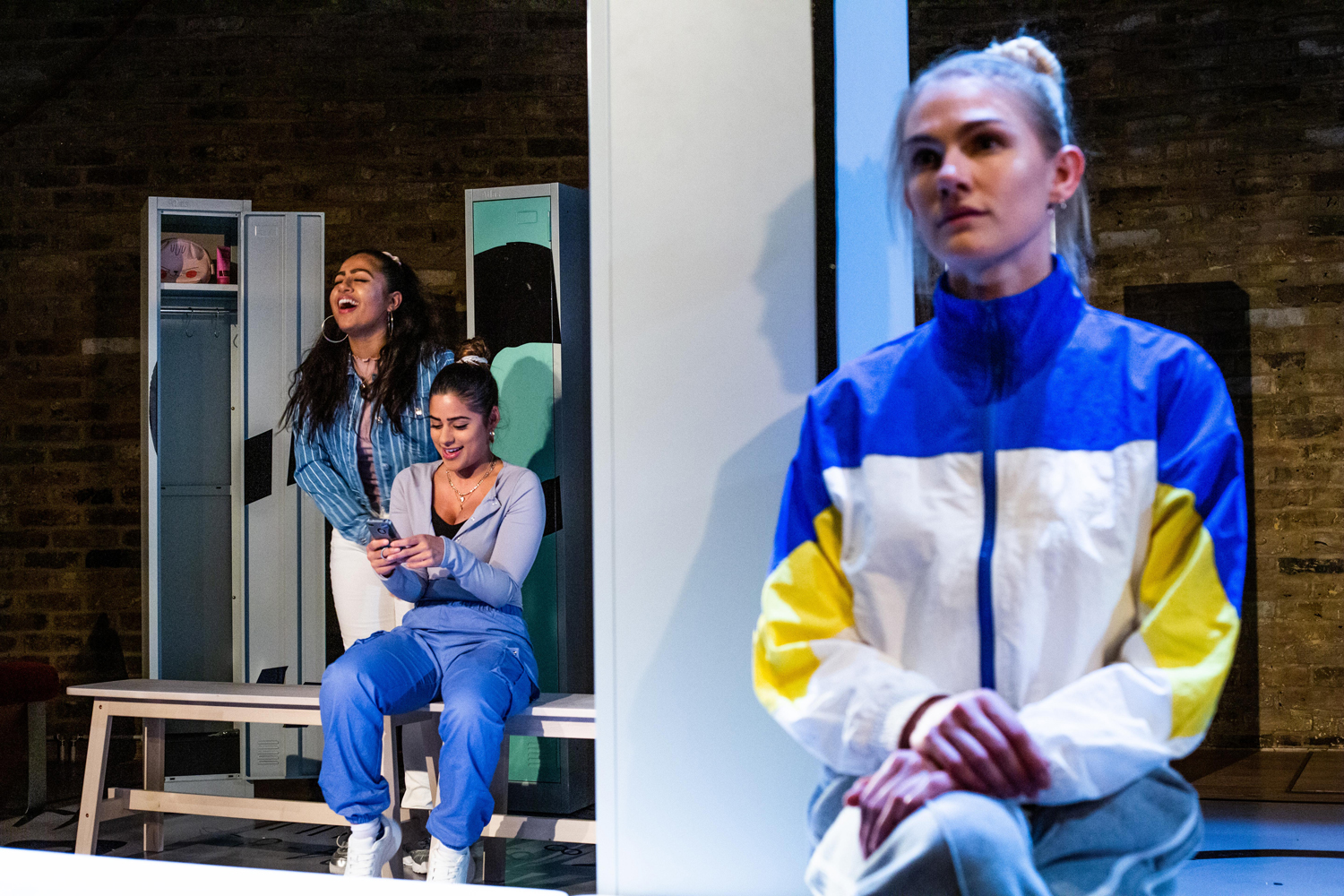Two bold and provocative productions worthy of ★★★★ a piece
When we discovered that two playwrights of Jewish heritage were both launching shows exploring the predicament of women pushed to extremes by their experiences, circumstances and backgrounds, we simply had to analyse them as a double-hitter. Concurrently running until Saturday 8 June in London are Nyla Levy's Does My Bomb Look Big in This? and Julia Pascal's Blueprint Medea, both of which are made of firm four-star stuff.
Levy enjoys the shared heritage of her Canadian Jewish father and Pakistani Muslim mother, but it's this background that's led to difficult experiences that feed into the story of her heroine Yasmin, who becomes a ‘Jihadi bride’. She identifies culturally as Jewish and Muslim, Levy explains, but received racist comments at school before she knew what Islamophobia was “because people only ever saw my ‘brown side’”.
Pascal’s heritage is Ashkenazi Jewish – through her grandparents, who came to the UK from Eastern Europe – and she has a fascination with the story of the Kurds. Through a refugees’ support worker, she met a Kurdish woman – one of the female soldiers who fought in the 1980s struggle to establish a nation state in territory ruled by Turkey. She feels there is an affinity between the Kurds and their defiant, well-organised battle against persecution and discrimination – including scapegoating during the Armenian Genocide – and the Jews, another persecuted minority whose fighters include female soldiers. She was amazed to discover a genetic connection between Jews and Kurds, and that Ur (original home of the patriarch Abraham) is in the heart of Kurdish-inhabited territory.
The resulting plays by both accomplished writers are urgently thought-provoking and beguiling in their own ways.
In Does My Bomb Look Big in This? Levy casts three young women in every role, whether female or male, in a telling pushback against constantly finding herself playing supporting roles like ‘terrorist’s girlfriend’ and ‘Jihadi bride’ in male-led narratives. Her work is intimate and funny and the language wonderfully streetwise. Although a working knowledge of multicultural London English is helpful, clear context and vivid characterisation easily engages the audience to navigate the story of Yasmin. Aged just 15, she becomes susceptible to online grooming by a mysterious, eloquent woman based in Isis-held territory, thanks to a perfect storm of racial harassment at school and life-changing upheaval at home. Her mother’s rapid decline and death from cancer is followed by her father’s equally rapid remarriage to the unsympathetic "Stepbitch", who proves already to be "Pregbitch".
Each actor plays a lead and several other characters with irresistible energy, clearly revelling in the lightning switches between roles. Levy herself plays Yasmin, with Halema Hussain as Yasmin’s bestie Aisha, and Eleanor Williams as Morgan, the nemesis who attacks Yasmin in the school cloakroom. Levy often tells her story in flashbacks, where the trio – mostly in those lead personas, but also simply as actors examining their roles – engage in discussion about how events have unfolded, with Brechtian awareness of, and complicity with, the audience. Thus, as Yasmin narrates her story and discusses how it should be told or how events unfold, it is done in flashbacks from an uncertain or unspecified future.
Levy’s Yasmin is engaging, bright and sympathetic, defiantly mouthy and clearly vulnerable. Hussain’s Aisha is a delight in her empathetic support for Yasmin and the pair make a great double act too. In a clever role reversal twist, Williams’ Actor 3, who plays Morgan and the other (unsympathetic) ‘white’ roles – including "Shopbitch", the unfeeling assistant to whom a hijab-clad Yasmin addresses the question of the play's title – complains that every character she plays is "so one dimensional. Bully, sales assistant… all filler roles". Actor 3 also gets to play the women groomed by Isis, who in turn work on Yasmin, as well as the French Jihadist to whom she is rapidly married (a surprisingly sympathetic character sketch). Mingyu Lin’s pacy direction on a simple set of school cloakroom lockers ensures the action never flags. Levy’s tragicomedy is "bare safe" (in other words very cool).
Meanwhile Blueprint Medea fits especially well into Finborough Theatre, with its record of staging theatre that remembers the Armenian genocide. Pascal provides superbly informative programme notes on the Kurds past and present, including powerful photographic images of female freedom fighters. Medea, played with integrity, passion and dignity by Ruth D’Silva, burns with all the intense power of these women warriors, fuelled by the injustices she's suffered that have driven her to seek refuge in the UK as an illegal immigrant on a forged passport. She finds a proactive champion in support worker Suzy (sympathetic Amanda Maud), who finds her work as a cleaner in a gym and installs her in a flat with a fridgeful of food. It is in Suzy that Medea confides that her grandfather was Armenian, murdered by the Turks during the genocide, a common intermingling of these persecuted peoples.
Suzy, however, is in ill health and cannot continue her support. So at first it seems a godsend that Jason-Mohammed (Max Rinehart, buff and bluff), a body-popping would-be cab driver she meets at the gym, falls for her. The secularised son of Iraqi immigrants proposes to marry her and to legitimise the twins she bears him. Pascal’s play cleverly updates the action of Euripides’ ancient Greek tragedy by having Jason’s controlling Muslim father (convincingly patriarchal Tiran Aakel) reject Medea because she is a Kurd (traditional enemy of Iraqis) and insist he marry his cousin Glauke (appealingly delicate Shaniaz Hama Ali). Medea’s terrifying vengeance takes on a new twist at the hands of Pascal, though she leaves the degree of violence with which she carries it out ambiguous.
Pascal’s writing style skilfully combines the demotic with the poetic and, like Levy, her storytelling includes flashbacks. She directs herself the arresting mix of non-naturalistic and realistic action on Kati Hind’s set of versatile levels; walls decorated with portraits of martyred Kurdish heroes. Her talented cast of five amply fill the stage, each playing several roles and acting in chorus. James Peter Moffatt’s music and sound design intensifies the mood and atmosphere of an unflinching, unsettling drama.
Whatever your heritage you are likely to find plenty in these two brave productions that will open your eyes to how women might find themselves pushed to terrifying extremes.
By Judi Herman
Does My Bomb… photos by Bettina Adela
Blueprint Medea photos by Isabella Ferro
Does My Bomb Look Big in This? runs until Saturday 8 June in London and is on Tuesday 11 June only in Bedfordshire; details below. Contains strong language; suitable for ages 14+
London: 7.15pm, 2.15pm (Sat only). £13-£18. Soho Theatre, W1D 3NE. www.sohotheatre.com
Bedfordshire: 7.30pm. £5. Luton Libraries, LU1 2NG. http://lutonculture.com
Blueprint Medea runs until Saturday 8 June. 7.30pm (Tue-Sat), 3pm (Sat & Sun only). £20-£25, £18-£20 concs. Finborough Theatre, SW10 9ED. www.finboroughtheatre.co.uk







